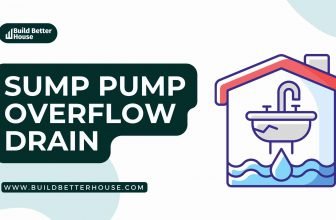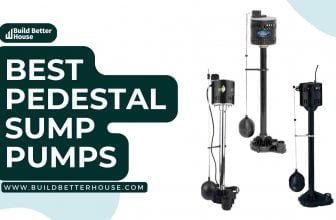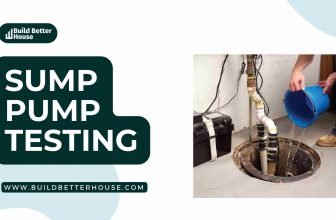Does Your Sump Pump Leaks Oil? Here’s How To Fix It
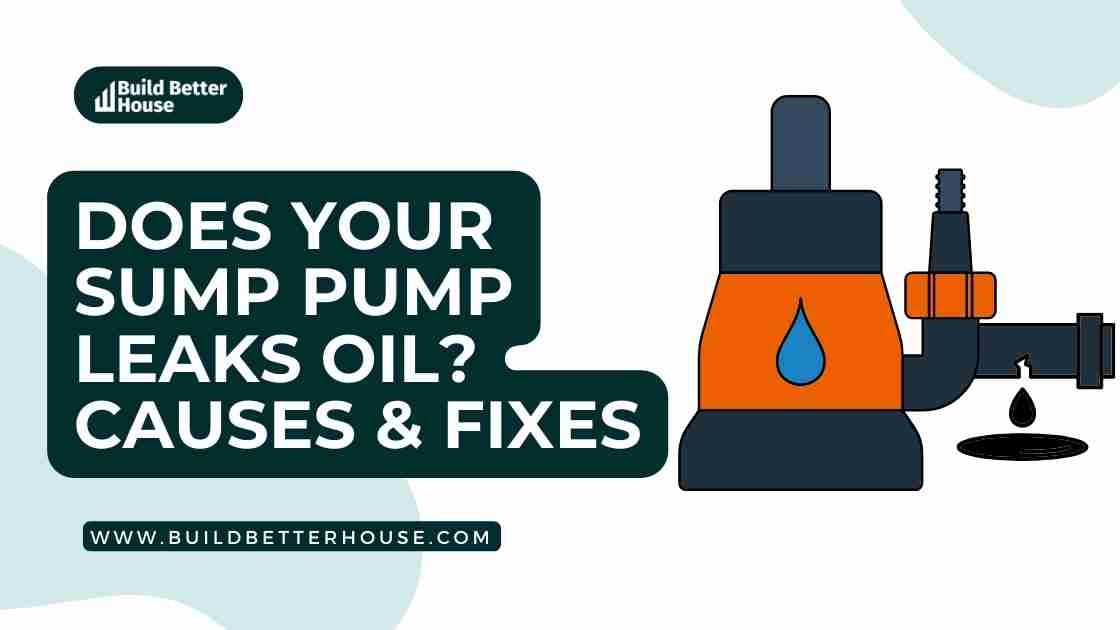
Does your sump pump leaks oil? Undoubtedly, it’s a significant concern for all homeowners. Despite having a new system in your home, you may still have an oil leak in your sump pump.
When heavy rains and snow melt cause water to overflow, your sump pump plays a vital role in protecting your home from flooding. Though sump pumps last for years at a time, they are not always perfect. Sump pumps may leak oil occasionally, which can be problematic if you are unaware of what to do.
Fortunately, you can go through a few steps to determine whether your sump pump leaks oil and what measures to take when you discover it.
If your sump pump leaks oil, it may not affect its efficiency immediately, but it can indicate severe problems in the future.
This article will examine why your sump pump leaks oil, how to check the oil level in your pump, and what you can consider to prevent it from leaking again.
Why Your Sump Pump Leaks Oil?
Having a sump pump that leaks oil can be pretty alarming for homeowners. The oil leakage in the sump pump indicates that the pump’s internal components are lubricating with inadequate quantities of oil.
Any size of oil leak is severe and should never ignore. The presence of sump pump oil in the pit, basin, drain lines, or on the pump’s side indicates a problem. When a sump pump leaks oil, it may also mean water is leaking into the sensitive areas of the pump and causing it to burn out.
A buildup of oil can clog a sump pump, an overfilled sump pit, or a leaking drain line. It can also be caused by failing to maintain your sump pump correctly.
Lack of maintenance, clogged filters, and a slow-working pump motor are all factors that cause sump pump leaks. If you suspect your sump pump leaks oil, you should have a professional inspect it to determine what is causing the leak.
A leaky oil pump can cause a variety of problems. It may also indicate that water is leaking into sensitive parts of the pump, causing it to burn out. As a result, it is critical to act quickly to avoid further damage.
What To Do When The Sump Pump Leaks Oil?
As previously stated, when the sump pump leaks, it indicates a significant concern that must resolve immediately. So scroll down and look at the tips below to save your sump pump from oil leaks and improve its efficiency.
Inspection
If your sump pump is submersible, locating the source of the oil in the pump can be more difficult. In most cases, floating oil droplets on the surface of the water are the first indication of a problem.
Since pedal sump pumps are mounted on stands and are more open, inspecting them and examining where the oil is coming from is easier. You can also visually check for oil puddles and drips by rubbing your hands over various parts of the sump pump.
Ensure the pump is unplugged and removed so it can check thoroughly for leaks. If you can’t find oil leaking from the pump, you might have to look in your basement for another source.
Identifying sump pump leaks
A sump pump with oil almost always indicates a problem; all you have to do is look for it. Sump pump leaks are usually easy to locate.
You must turn off the pump, remove it from the pit, inspect the line and look for sump pump leaks.
There is a high possibility that oil might enter the pit through groundwater rather than the pump. Follow the steps below to clean your sump pump.
- Take the pump out of the pit and dry it.
- Find out where the sump pump leaks and is coming from
- Resolve the leak and refill the oil
- Install the pump again and test it.
However, calling a professional for service would be better if you discover that your sump pump leaks oil.
An increase in sump pump leaks
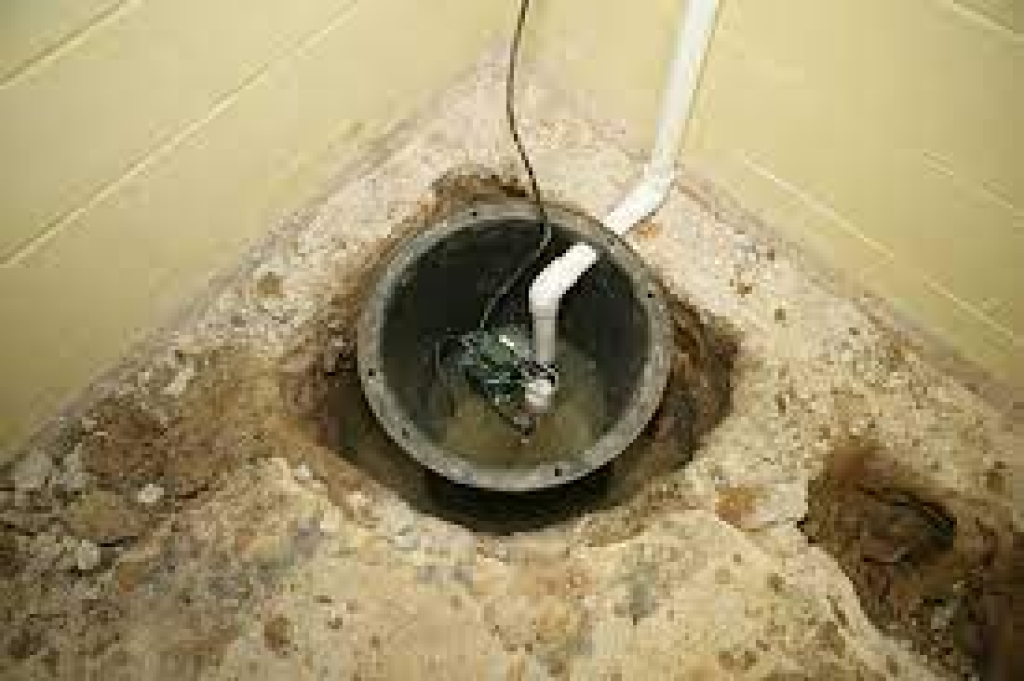
Taking more than simply first-level precautions to correct a leak is necessary if you discover the presence of oil in the sump pump despite taking the necessary safety precautions. If you haven’t already, you should now look for expert assistance.
Sometimes, when your sump pump leaks oil, you might have no choice but to replace it. So rather than exploring other possibilities, it is better to locate and resolve the solution as quickly as feasible.
Prevent Environmental Contamination
Your sump pump will pump oil-contaminated water outside if it leaks or has come into contact with oil pollution from another source.
Oil contamination negatively affects the area around your pump. This could impact your lawn, streams, and other natural features. Therefore, if you notice that your sump pump leaks oil, be sure to clean it out right away.
It is best to check your sump pump once a year to prevent any potential oil leaks.
Oils To Use In Sump Pumps
Most sump pumps are factory sealed to avoid leaks and overheating. Yet you might need to add more oil to your pump if you encounter significant sump pump leaks.
The oil helps lubricate and maintain internal functionality in sump pumps and most other motors. Check the owner’s handbook before purchasing to ensure you have the correct type of oil, although some pumps, including turbine pumps, use different kinds.
The sump pump may need more oil if it runs low on oil after a sump pump leaks. The sump pump should not need an oil change like your car – but if a leak occurs, you may need to fill it to prevent overheating or overloading.
The best oil in a sump pump is ISO30 turbine oil or 5W30 motor oil. WD-40 3-in-1 Motor Oil lubricates all pump parts, extending their life. It can also use on other residential tools and machines; a bottle will last a long time. Consult your manufacturer’s recommendations if you’re unsure what type of sump pump oil to use.
How To Change Sump Pump Oil?
The sump pump oil needed for your device largely depends on how old it is. More recent equipment uses white biodegradable oil or dielectric transformer oil.
Sump pumps are typically quite durable and functional. They will operate for many years. Even when problems occur, they are usually not too difficult to fix.
But it still needs routine maintenance, and the most crucial maintenance aspect is regular oil changes, just like any other mechanical device. When you purchase a new sump pump, with the help of a retailer or the instruction manual guidance, you will get to know how frequently you need to replace the oil.
Sump pump oil replacement is a relatively simple process. You may easily do it by following the steps and using the tools listed below.
Tools Required
- Oil Drain Pump
- Sump Pump Oil
- Filter
- Screwdrivers
- Gloves
Now let’s begin the process!
Step 1: Remove the Filter
Before changing the oil, remove the oil filter at the bottom of the sump pump.
However, before you start the process, do not forget to wear gloves. With it, you’ll be able to effectively prevent your skin from absorbing grease or oil. You will have no trouble draining the oil once you remove the filter.
Step 2: Insert the Oil Drain Pump
After removing the filter, insert the drain pump’s tube into the dipstick and lower it until it reaches the bottom of the oil pan.
Make sure not to stretch the tube too far, or it will turn upwards and fail to perform effectively. Drain the old oil from the sump pump using the drain according to the instructions on the packaging.
Step 3: Replace the Filter and the Oil
Once it drains the old oil, replace the filter at the bottom of the device and add the newly purchased oil. The new oil will improve the sump pump’s functionality, increase its durability, and reduce the likelihood of any maintenance costs.
Yes! With these simple steps, you can effortlessly change the oil in your sump pump. You can sit back and relax without worrying about whether your pump is low on oil and how this will affect its function.
Conclusion
The life span of a sump pump is usually between 5-10 years, depending on use, location, maintenance, and other factors. That is why inspect it from time to ensure it works correctly. An oil leak in your sump pump is not just a problem for you; it can lead to flooding.
You should also find out where the oil is leaking to take appropriate steps to fix the sump pump leaks and prevent similar ones from happening again. The most effective way to avoid any potential leak is to change the oil level on your sump pump every year.
Depending on your region, the types of oils used might vary slightly. You may want to change the filters in your sump pump. Once you have a new pump in your home, inspect it for possible issues and properly maintain it to reduce the likelihood of future sump pump leaks.
What kind of oil should use in a sump pump?
Synthetic 5W30 motor oil is the best option. The unit will have enough oil to cover the motor windings. However, there should be enough space in the pump casing to expand as the oil heats up.
Why does my sump pit contain oil?
Sump pits contain sump pumps, and excess water will flow into these sump pumps. Its primary function will be to pump the water out of the pit and away from the foundation, keeping the basement dry. Oil lubricates and cools the motor of a sump pump.
What type of oil goes in a Zoeller Pump?
Zoeller sump pumps use dielectric oil, a light mineral oil that performs well in engines near water.
Take into account that your regular bottle of mineral oil will not suffice. You must use dielectric oil.
What Lubrication Oil Should I Use in Submersible Pumps?
We recommend using type 32A hydraulic oil in your submersible pump. If you use it for kitchen purposes, you can also use food-grade oil.
FAQ
What kind of oil should use in a sump pump?
Synthetic 5W30 motor oil is the best option. The unit will have enough oil to cover the motor windings. However, there should be enough space in the pump casing to expand as the oil heats up.
Why does my sump pit contain oil?
Sump pits contain sump pumps, and excess water will flow into these sump pumps. Its primary function will be to pump the water out of the pit and away from the foundation, keeping the basement dry. Oil lubricates and cools the motor of a sump pump.
What type of oil goes in a Zoeller Pump?
Zoeller sump pumps use dielectric oil, a light mineral oil that performs well in engines near water.
Take into account that your regular bottle of mineral oil will not suffice. You must use dielectric oil.
What Lubrication Oil Should I Use in Submersible Pumps?
We recommend using type 32A hydraulic oil in your submersible pump. If you use it for kitchen purposes, you can also use food-grade oil.
Read More
What Is A Sump Pump? Everything You Need To Know
Top 5 Under-Sink Sump Pumps Available In The Market
How Do I Install Sump Pump Basin Holes? 7 Step-By-Step Guide



